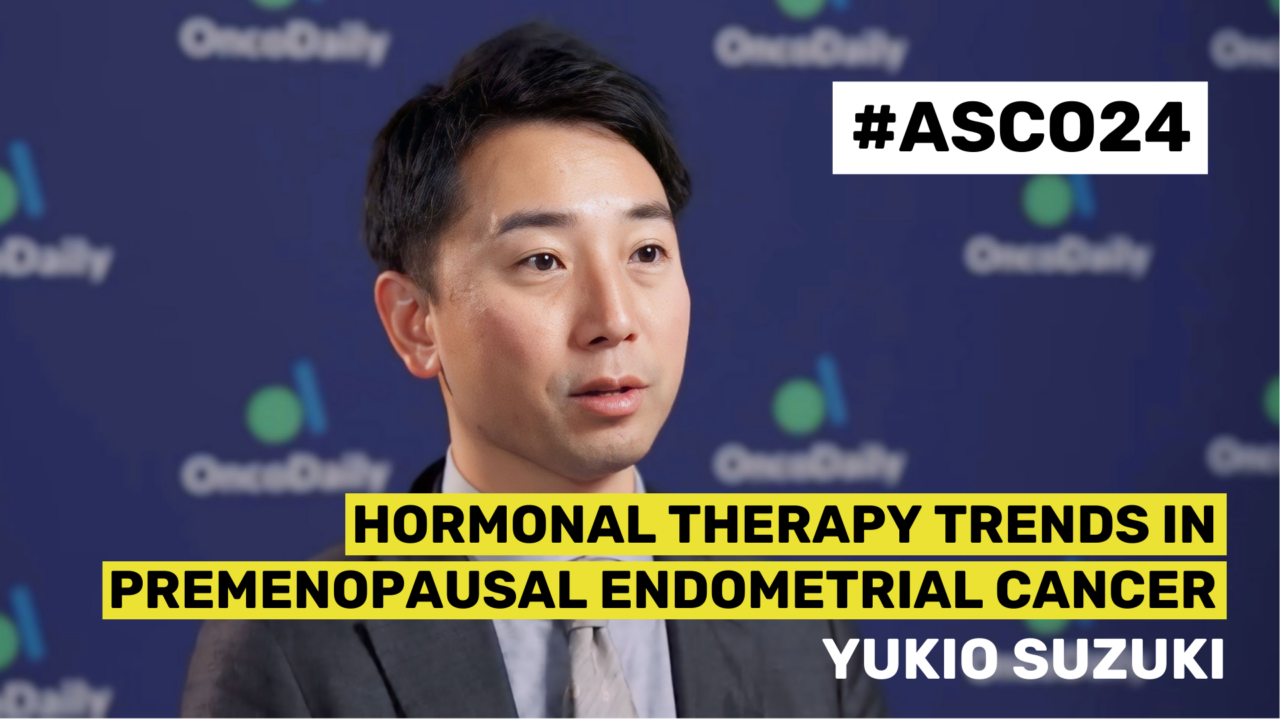The American Society of Clinical Oncology (ASCO) Annual Meeting is one of the largest and most prestigious conferences in the field of oncology. This year, the meeting took place from May 31 to June 4 in Chicago, Illinois. The event gathers oncologists, researchers, and healthcare professionals from around the world to discuss the latest advancements in cancer research, treatment, and patient care. Keynote sessions, research presentations, and panel discussions are typically part of the agenda, providing attendees with valuable insights into emerging trends and innovations in oncology.
This year, OncoDaily was at ASCO 2024 for the first time covering the meeting on-site. We had the pleasure of interviewing researchers who summarized the highlights of their work.
In this video, Dr. Yukio Suzuki from Kanagawa Cancer Center, shared insights from ‘Long-term survival outcomes for hormonal therapy in premenopausal patients with clinical stage I endometrial cancer.‘
I’m Yukio Suzuki, gynecological oncologist in Japan from Kanagawa Cancer Center, and I was a former researcher at Columbia University. So the title of our study is Long-Term Survival Outcome for Hormonal Therapy in Premenopausal Patients with Clinical Stage 1 Endometrial Cancer. What we are going to look at is to determine the trends in and patterns of use of hormonal therapy among patients with endometrial cancer who are clinical stage 1 endometrial cancer.
So we use National Cancer Database, which covers around 70% of newly diagnosed cancer cases in the U.S., and this is a retrospective cohort study. We have the two major parts of our study, and the first one is we are looking at the trends in and patterns of use of hormonal therapy with overall cohort, which has over 15,000 patients. And the second one is survival analysis by propensity score matching cohort with 2,000 patients.
We included patients, 18 to 49 patients, 49 years old, and endometrioid cancer, grade 1 or grade 2, and clinical stage 1 endometrial cancer. So our main findings is the utilization rate of hormonal therapy is increased over time, and the utilization rate rose from 4% to 5% around 2004 to 2010, and it’s going up to 12% or 14% in recent years. Younger age, non-white race, and diagnosis in recent years, patient who are treated at academic cancer center, patient who live in middle point area were associated with primary hormonal therapy use.
In terms of tumor characteristics, grade 1 and stage 1A were associated with primary hormonal therapy use. For survival outcomes, the propensity score match cohort is well-balanced between the two primary treatment group. Overall, after 10-year follow-up, among patient younger than 40 years, the survival rate was similar between the two primary treatment group.
On the other hand, patient aged 40 to 49 years old, the survival rate was inferior in hormonal group than hysterectomy group. Shared decision-making should be further needed to provide the hormonal therapy use in the patient with endometrial cancer in early stage for the premenopausal patient. Thank you so much.
More videos and content from ASCO 2024 on OncoDaily.


